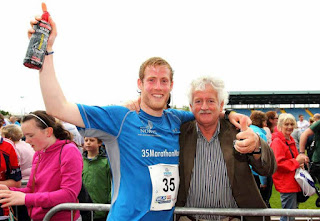“When you realize the value of all life you
dwell less on what is past and concentrate more on the preservation of the
future.”- Dian Fossey’s last journal entry.
Using
the word “gorilla” as an insult is an act of ignorance, and it is the result of
deeply ingrained prejudices. In fact, gorillas are peaceful beings who care
about their most vulnerable. They form lifelong relationships, mourn the loss
of their loved ones and have a sense of humor. Their diets are mostly
vegetarian, though they sometimes eat insects to add protein.
Gorillas are not violent; they only become
aggressive when the safety of their families is in jeopardy.
Unforgotten by Anita Silvey is a children’s book, but I recommend it to people of all ages. It is a fascinating exploration of Dian Fossey’s life story and her legacy, with amazing facts about gorillas and the quest to protect them.
Originally from California, Dian Fossey
worked as an occupational therapist in a children’s hospital in Louisville,
Kentucky, where she is still remembered for her kindness and her care of
children with polio.
After a life-transforming African safari for
which she used up all her savings as well as the money of a loan she obtained
for this purpose, she was determined to return to Africa to spend time with
gorillas. With the support and training of Dr. Louis Leakey, the anthropologist
who also mentored Jane Goodall and Birute Galdikas, Dian moved to a 7- by -10
foot tent (2-by-3-m) amid the forest in the Democratic Republic of Congo (DRC) in the year 1967. She was about to turn thirty-five years old. Due to political
conflicts and persecutions in DRC, she would later settle in Rwanda to continue
her work.
Dian Fossey was the first person to hold hands with a wild gorilla. His name was Peanuts.
Dian was on a mission to research the lives of
gorillas. Every evening, she would return to her tent and typewrite her
observations. Yet Dian’s research went beyond the scope of scientific findings,
for she fell in love with these gentle creatures and did everything she could
to save their lives.
Thanks to Dian Fossey’s work, mountain
gorillas still exist today, but they are critically endangered.
Due to
traps set by poachers, gorillas can get injured or killed in the forests.
Habitat loss and climate change also threaten their survival. Colossal patches
of land are destroyed to make way for roads, crops and livestock. Even National
Parks are compromised by illegal woodcutting. Last but not least, wars and
political instability in Congo are a threat to their safety. (Thankfully, the political
situation in Rwanda is stable).
Dian
Fossey’s stay in Africa was disrupted by civil wars, poachers and traumatizing
experiences, but she fought till the end to save these peaceful giants.
Unfortunately, she was murdered by poachers in 1985, but there is a team that
continues to work to protect gorillas; these people are endowed with the spirit
of resilience she infused into her endeavors to rescue gorillas.
Trackers
in Volcanoes National Park in Rwanda search and destroy poaching traps. Anita
Silvey’s book explains the fascinating details on how the trackers are working
together to support gorilla families. These trackers work for the Dian Fossey Gorilla Fund; they also study gorillas closely and educate people on how they
can help.
Tracker Alfonsine Nakure, for example, is working on the front lines of this mission to support gorillas. Special skills and knowledge are needed to accomplish their goals.
Unforgotten shares the same captivating
style of Untamed, which I reviewed not long ago. Reading “Unforgotten” was
akin to embarking on an adventure of exploration. I could not stop turning the
pages to find out what would happen next. Starting with Dian’s childhood, Silvey
immerses us in the social and economic context to help us understand her
better.
Unfortunately, gorillas are not the only endangered apes. Bonobos, chimpanzees and orangutans endure the same ordeal. Anita Silvey’s books are an invitation to help make a difference.
Unforgotten is published by National Geographic Kids. The Dian Fossey Gorilla Fund is located in Rwanda. You can
learn more about Dian Fossey’s Gorilla Fund here.
I will be
reading Dian Fossey’s book Gorillas in the Mist, and I will write about it in
a future blog post.
Enjoy this breathtaking video to learn more:
















